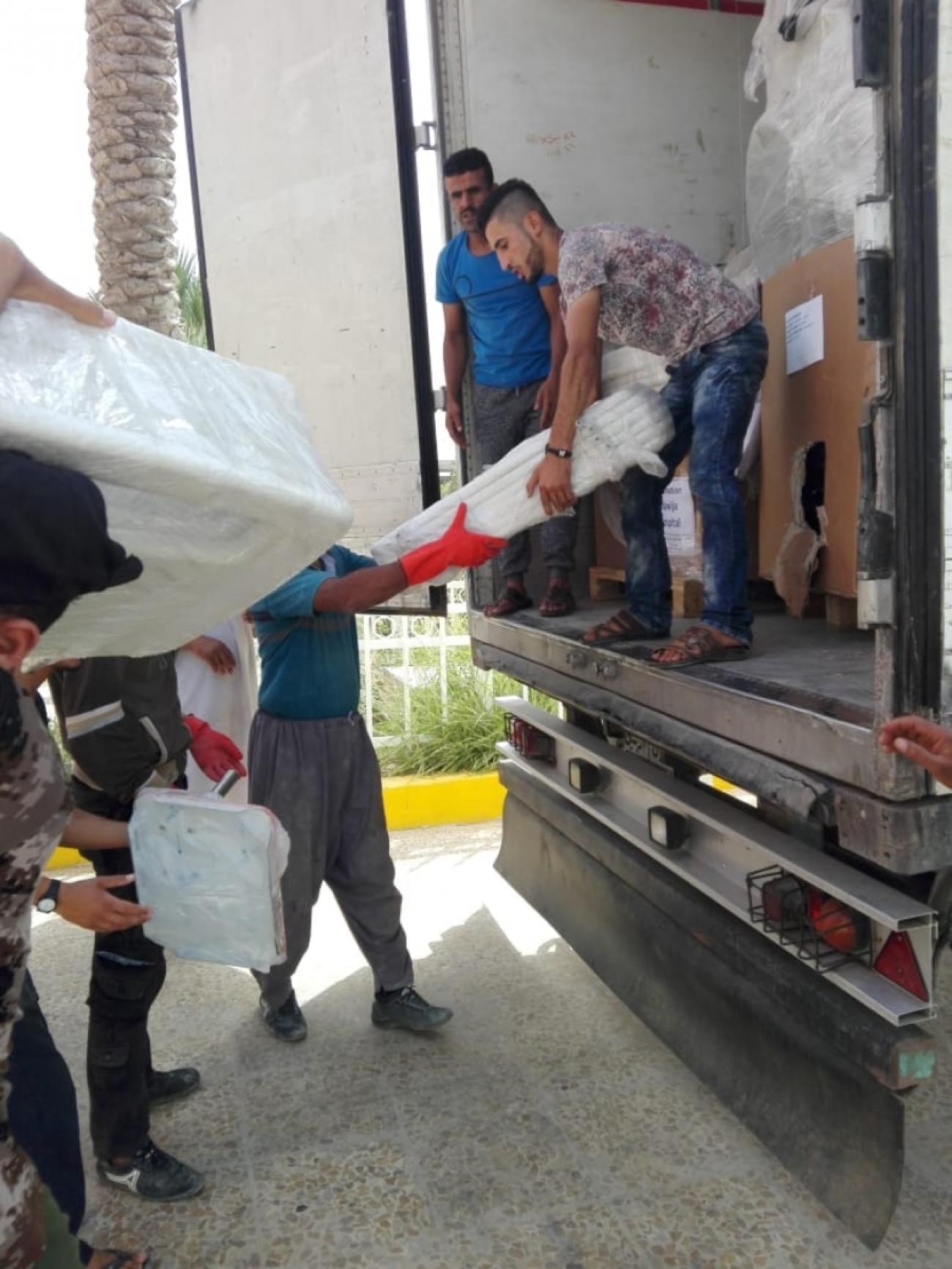Essential and Lifesaving medicine and medical kits operates back Hawija General Hospital after 3 years of halt

Al Hawija District, 45 km west of Kirkuk governorate in Iraq, has suffered severe shortages of critical supplies, including food, water
Al Hawija District, 45 km west of Kirkuk governorate in Iraq, has suffered severe shortages of critical supplies, including food, water, and medicine during the conflict and displacement crisis in 2014.
The district health facilities were significantly impacted by the fight which led medical staff to leave the area and consequently deprived significant numbers of people of the medical assistance they need.
Al Hawija General Hospital, the only major health facility in the district and which used to serve the district populations of approximately 300,000 inhabitants, was extensively damaged during the past 3 years of the crisis before the district liberation in September 2017.
“Some parts of the only hospital we have in Hawija were totally damaged like the pediatric ward. Some were burned like the Emergency Room and the operation theaters. Majority of the assets were looted and stolen,” said Dr. Falah Sami, a pediatric doctor in the hospital.
Responding to the immense need of the newly operated hospital, the Directorate of Health in Kirkuk rehabilitated the Emergency Room, while the World Health Organization (WHO) arranged for a big consignment of medicines, medical disposables, equipment and furniture to support the hospital.
The consignment included 2 surgical kits sufficient to support 200 operations, 5 trauma A kits sufficient to treat 500 injuries, 5 trauma B kits enough for 500 patients, and a list of medical furniture of 24 items including beds, wheelchairs, trolleys, stretchers, and others.
“This support from WHO came as the lifeline for the hospital,” said Dr. Imad Aldin Ahmed, a surgeon staff of the hospital. “It will help the medical staff in the hospital to work more efficiently and save more lives.”
“The hospital has been struggling to provide secondary healthcare services for the affected population in Hawija. So this WHO donation will provide the urgent intervention many lives have been waiting for,” added Hameed Nima a paramedic with over 19 years of service in the hospital.
The above support was in response to two assessment missions that were conducted by WHO to assess the health services in the district; and with the number of returnees to Hawija steadily increasing and based on the availability of resources, WHO is considering an official request to expand Hawija General Hospital and to equip an additional Operation Theater, currently under construction in the facility.
This urgent lifesaving support to Hawija General Hospital was made possible through the generous contribution from donors and health partners especially USAID-OFDA, ECHO, and the Government and People of Germany.

